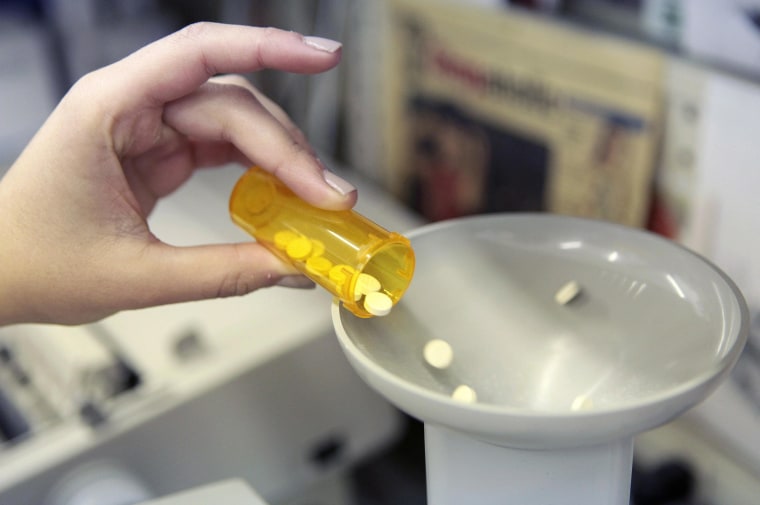It seems like ages ago, one of the few key areas on which Donald Trump broke with Republican Party orthodoxy in 2016 was lowering prices on prescription drugs. As regular readers know, the future president complained bitterly before taking office about the pharmaceutical industry’s powerful lobbyists, and insisted publicly that drug companies are “getting away with murder.”
Trump even went so far as to accuse the drug industry of corruption, arguing that pharmaceutical companies contribute “massive amounts of money” to politicians as part of a scheme to keep the cost of medicines higher.
The tough posture was predictably short lived. Once in the White House, Trump abandoned many of 2016 positions and started installing pharmaceutical industry insiders into key administrative posts.
That said, late last week, the president put his signature on four executive orders related to drug pricing, and over the weekend, he turned to Twitter to take a victory lap.
"Yesterday I signed four measures that will massively reduce the prices of prescription drugs, in many cases by more than 50%. Nothing like this has ever been done before because Big Pharma, with its vast power, would not let it happen."
Well, that certainly sounds impressive, doesn't it? We're apparently supposed to believe this was a bold presidential move, "massively" reducing the cost of prescription medications. Trump, the triumphant hero, stood up to Big Pharma, which never before allowed such a policy to advance.
All of which raised a rather obvious question: if "nothing like this has ever been done before," what exactly is "this"?
The answer, not surprisingly, is that there's far less here than the White House is trying to pretend. The New York Times reported, for example, "The centerpiece of Mr. Trump’s event was a vague proposal that could tie the price that Medicare pays for drugs administered by doctors to prices negotiated by foreign governments. The White House released no details about how the policy would be devised."
The same article added that one of the four executive orders -- the one related to the international pricing index -- was not released with the other three orders.
A Politico report noted that the White House's "plans are rife with limitations" and are "not immediately enforceable."
The Washington Post added that Trump's latest moves "are largely symbolic because the orders are unlikely to take effect anytime soon, if they do so at all, because the power to implement drug pricing policy through executive order is limited."
So why bother? Because there's a presidential election in a few months and Trump hasn't made much of an effort to keep his campaign promises related to drug pricing.
To this extent, Friday's executive orders were about checking a political box, allowing Trump to spend the next 99 days saying, "See? I fixed the price of prescription medications."
Whether the post-policy president understands that his executive orders have little practical value is unclear, but the end result is the same: those waiting for Trump's new policies to "massively reduce the prices of prescription drugs" are going to be disappointed.

